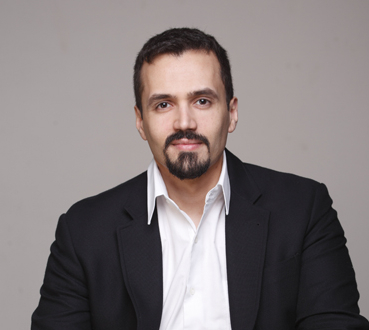
“Where are they? Where have they all gone? Where are all those young activists from the 25 January revolution?” It is a question that I get asked almost every time I engage with non-Egyptians; those based in Egypt or those who live in other capitals. The cynical among them reckon those activists ‘sold out’, and are essentially cheerleaders for the military, despite having protested against the military in late 2011 and much of 2012. The idealists are just left confused, because they haven’t a clue where these 25 January activists actually are. The truth is – many of those activists also do not know where they themselves are. But they remain – and their part in Egypt’s story is not over.
The revolutionary camp was never interested in delivering a solidified political presence that could command widespread support – and hence, there were few within the organised political arena, in terms of political parties and candidates, that claim to support the revolutionary trend. When the run-off led to Mohamed Morsi facing off against Ahmed Shafiq, the revolutionaries were left in shock – but mostly boycotted both of the candidates for being sufficiently unacceptable, or favoured Morsi in order to ensure that Mubarak’s last prime minister could not reverse the revolution. They did not hope for particularly much from Morsi, but they expected the revolution to remain in operation, if not being taken forward, until a further presidential election.
Over Morsi’s year in office, the position of these activists was weak – but they operated in an arena where no one was overwhelmingly dominant. As the year progressed, the Muslim Brotherhood found itself preoccupied with an ongoing vendetta against forces of the former regime – in the process, it managed to alienate even those activists who had supported Morsi over Shafiq. Nevertheless, none of this strengthened the hand of the revolutionary camp, but it did inadvertently provide limited space for the revolutionaries to operate in certain realms, while the Muslim Brotherhood and Mubarak’s old networks inside and outside the state’s apparatus battled each other.
Morsi’s ouster by the military took the revolutionary camp by surprise again. On the one hand, revolutionaries generally wanted early president elections, after regarding his continued presidency as an obstruction to the revolution. On the other, they were not exactly sympathetic to a deeper intervention into the political arena by the military. I remember seeing one of them on Qasr Al-Nil bridge, hours after Morsi had been taken into custody – and I can only describe his face as one overwhelmed by utter shock and revulsion. That was partly due to the fact that so many protesters were chanting homilies in favour of the police, and partly due to the fact that it was not the protesters that had forced Morsi out of power. Rather, the military had – and as such, this activist’s victory had been snatched away from him.
Not all the revolutionary activists felt that way. Many of them had stayed home for all of the June 30 protests, fearing that the protests would bring about a result that was just as dangerous for Egypt, if not more so, than Morsi’s presidency. Others had seen the military ouster as the lesser of two evils, and thought that had the military not intervened, there would have been violent clashes on the streets of Egypt’s cities. Others still wondered if the military had finally learned their lesson in terms of monopolising governance, and since the Muslim Brotherhood had given the military all that the leadership it could have wanted in the 2012 constitution, the military would simply institute new presidential elections, without doing much more than that. These activists did not think the military had suddenly become revolutionary – rather, that it would just not deepen the crisis further.
It did not take more than a few weeks for the differences of opinion among the revolutionary camp to become settled – however, it was not as a result of the actions of the pro-Morsi camp, whose rhetoric, incitement, and violence came as no surprise. Rather, pro-25 January activists saw the state’s “war on terror” discourse as counter-revolutionary, polarising and dividing Egyptian society, and rejected the forceful dispersal of particularly the pro-Morsi Rabaa sit-in, considering it abhorrent. At best, the revolutionary forces were ambivalent about the military and the interim government on 4 July– and that ambivalence was very short-lived. Before the state’s dispersal of Rabaa, which the Human Rights Watch described as “the most serious incident of mass unlawful killings in modern Egyptian history,” it would have been difficult to find a supporter of the revolution who was not against military intervention.
So: “where are they?” In the post-Morsi period, the state has occupied the width and breadth of the political arena, and there is little effective resistance. With such an overwhelming support base for the current military backing the interim government, those who offer critiques, even if they have proven their non (or anti) Islamist credentials, are being depicted by parts of the Egyptian media as ‘fifth columnists’, who are akin to, or even worse than, the Muslim Brotherhood (who are at least ‘open’ about who they are).
Under that paradigm, a few have decided to take something of a sabbatical from political activism. They’re cynical about a society that seems unwilling to give overwhelming support to anything other than Islamists like Morsi and the Muslim Brotherhood, which weakened the revolutionary impetus so much that it allowed for a military-backed regime to take over. Others insist that the time for struggle is now – and they have formed new coalitions (such as the new “Front for the Revolutionary Path”) to pursue the revolution’s goals.
It’s probably true that most pro-25 January activists exist in a nether space in-between these positions – they are marginal mavericks in society as a whole, and even within the revolutionary current. They do not see the revolution as ‘dead’ – but they do see it as something akin to one in deep storage in this phase of the Egyptian transition. Therefore, at this time, there is a choice: to resign themselves to the idea that there is no point in working for a position change… or to remain aware that just as there was such a point under Hosni Mubarak, the need to work for “bread, freedom, social justice, and human dignity” remains. Even if that means it is only from the margins, through the media, civil rights activism, and political agitation, for now. For these activists, aspiring to such principles did not start on 25 January – and it does not end now.
I saw one of those activists recently, and asked him, “So, what now?” He smiled, and said, “You know, I always felt I did not do enough for Egypt while Hosni Mubarak was in power. I get to make up for it now.” However marginal the thought of this maverick middle trend is, it still lives. While much of Egypt, whether pro-military or pro-MB, might regard these revolutionaries to be traitors to “the cause”, these activists still have a lot more to give. One day, Egypt might realise that while these revolutionary activists were imperfect, they were the most honourable manifestation of the promise that was Tahrir Square – and none have provided Egypt with a better vision than that promise.


